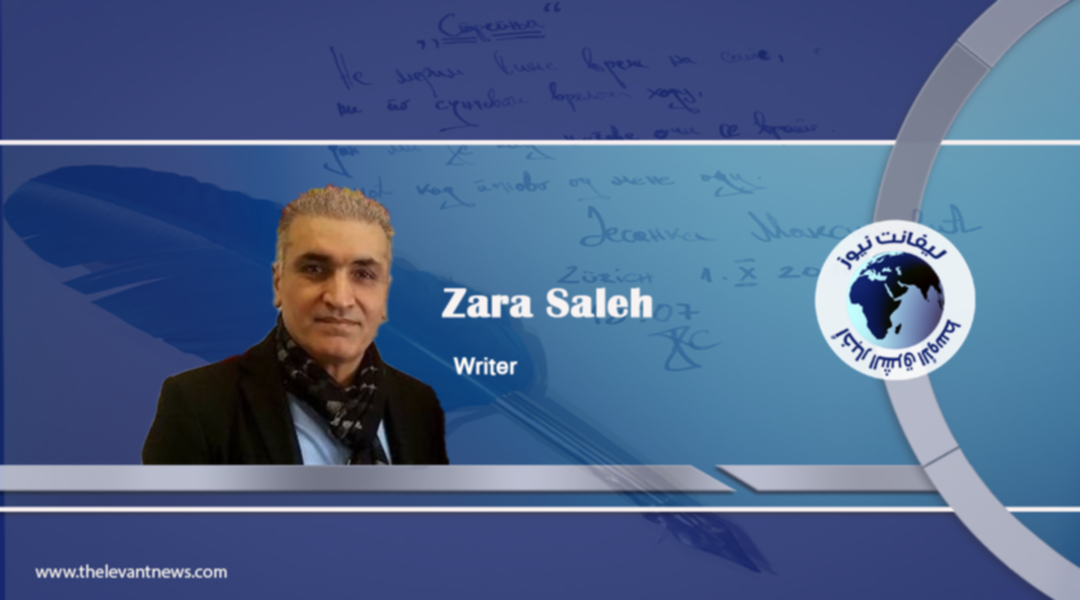-
What does Putin's recognition of the Donetsk and Luhansk regions as independent states mean?

Russian President Vladimir Putin has officially recognised the independence of the Ukraine regions of Donetsk and Luhansk as independent states. He also considers the two republics are not more part of Ukraine's territories. Added to that, the Russian President has ordered and sent his troops to control the two republics on a "peacekeeping mission" forces in East Ukraine. The same scenario has been done by Moscow in 2008 when Russia recognised the independence of the two Georgian regions, Abkhazia and South Ossetia which could be a scenario now applied to Ukraine.
Going back to the core of the Russian-Ukraine crisis in 2014, Russian-backed separatists in Donetsk and Luhansk, east Ukraine has announced themselves as two independent republics from the Ukraine government but without any official recognition by the international community except Moscow. Since that, more than 14,000 people have been killed during the conflict between Ukraine and Russian-backed separatists. Then, the ceasefire has been reached with the mediation of France and Germany in 2015 that called the Minsk Agreement.
In other words, Putin's recognition and sending the Russian military to the two Ukraine regions means firstly the end of the Minsk peace agreement between Ukraine and Russia. Secondly, such as step will means that Moscow formally is occupying sovereignty of Ukrainian territory for the second time after the occupation of Crimea in 2014. Finally, Russia's decision demonstrates the ending of the dialogue path and could lead to the invasion of Ukraine by Russia and as a declaration of the war by Putin. On the other hand, Russia's decision will definitely escalate the situation and increase the tension between Nato and Russia. Moscow will face financial and political sanctions, especially after breaking the Minsk peace agreement. For example, the UK government has declared a series of economic sanctions against Moscow today in the house of parliament in London. Boris Johnson, the UK Prime Minister said these sanctions were a "first barrage" against Russia and could be extended. Furthermore, the Europe and Western response to the Russian decision and to the current crisis will consequence further sanctions by the EU and the US of their own. Germany, for instance, has halted the Russian gas pipeline as sanctions against Putin's orders to send Russian troops to Ukraine.
In contrast to Vladimir Putin's actions in Ukraine, the Russian policies and response in Syria were controversial regarding the notions of sovereignty and the federal system of governance. For example, during all Astana-Sochi meetings about the Syrian conflict, Russia has always been calling for the protection of the sovereignty and unity of Syria's territories. Moscow has always been accusing the US of supporting the Kurdish "separatists" of splitting the Syrian territories and threatening the unity of Syria. Whereas, Putin has officially recognised the independence of "its separatists" in Donetsk and Luhansk. Added to that, the Russian foreign secretary Lavrov has accused Kurds and the Syrian Democratic Forces (SDF) of separatism and attempting them to establish a 'Kurdish State' in northeast Syria with the American support. Following its decision in Ukraine, the Russian President Vladimir Putin should recognise the independence of the Kurds in Syria or at least the federalism for Kurdish region and Syria to become a Federal state similarly to the two independent republics of Donetsk and Luhansk.

BY: Zara Saleh
You May Also Like
Popular Posts
Caricature
BENEFIT Sponsors BuildHer...
- April 23, 2025
BENEFIT, the Kingdom’s innovator and leading company in Fintech and electronic financial transactions service, has sponsored the BuildHer CityHack 2025 Hackathon, a two-day event spearheaded by the College of Engineering and Technology at the Royal University for Women (RUW).
Aimed at secondary school students, the event brought together a distinguished group of academic professionals and technology experts to mentor and inspire young participants.
More than 100 high school students from across the Kingdom of Bahrain took part in the hackathon, which featured an intensive programme of training workshops and hands-on sessions. These activities were tailored to enhance participants’ critical thinking, collaborative problem-solving, and team-building capabilities, while also encouraging the development of practical and sustainable solutions to contemporary challenges using modern technological tools.
BENEFIT’s Chief Executive Mr. Abdulwahed AlJanahi, commented: “Our support for this educational hackathon reflects our long-term strategic vision to nurture the talents of emerging national youth and empower the next generation of accomplished female leaders in technology. By fostering creativity and innovation, we aim to contribute meaningfully to Bahrain’s comprehensive development goals and align with the aspirations outlined in the Kingdom’s Vision 2030—an ambition in which BENEFIT plays a central role.”
Professor Riyadh Yousif Hamzah, President of the Royal University for Women, commented: “This initiative reflects our commitment to advancing women in STEM fields. We're cultivating a generation of creative, solution-driven female leaders who will drive national development. Our partnership with BENEFIT exemplifies the powerful synergy between academia and private sector in supporting educational innovation.”
Hanan Abdulla Hasan, Senior Manager, PR & Communication at BENEFIT, said: “We are honoured to collaborate with RUW in supporting this remarkable technology-focused event. It highlights our commitment to social responsibility, and our ongoing efforts to enhance the digital and innovation capabilities of young Bahraini women and foster their ability to harness technological tools in the service of a smarter, more sustainable future.”
For his part, Dr. Humam ElAgha, Acting Dean of the College of Engineering and Technology at the University, said: “BuildHer CityHack 2025 embodies our hands-on approach to education. By tackling real-world problems through creative thinking and sustainable solutions, we're preparing women to thrive in the knowledge economy – a cornerstone of the University's vision.”
opinion
Report
ads
Newsletter
Subscribe to our mailing list to get the new updates!






















